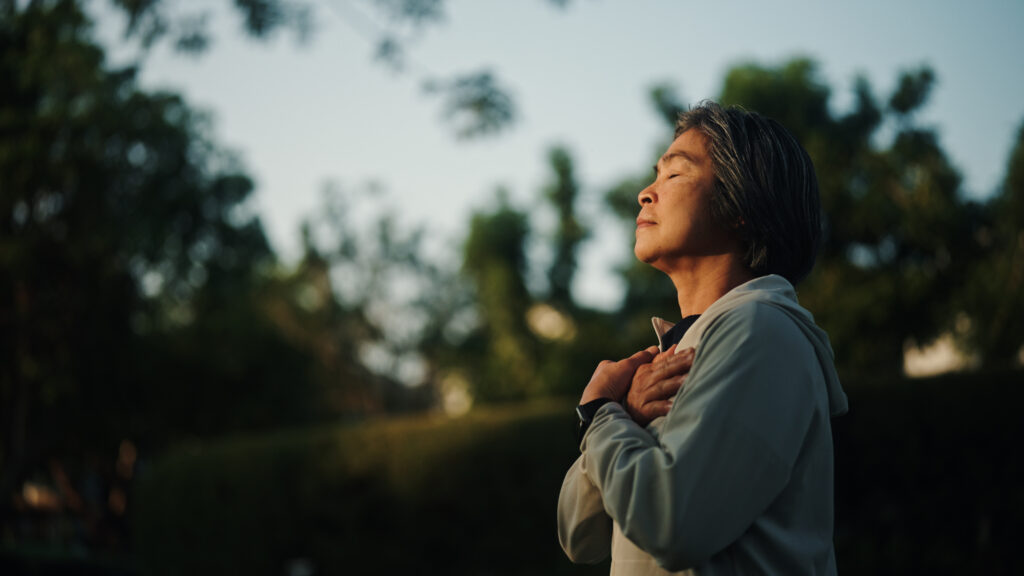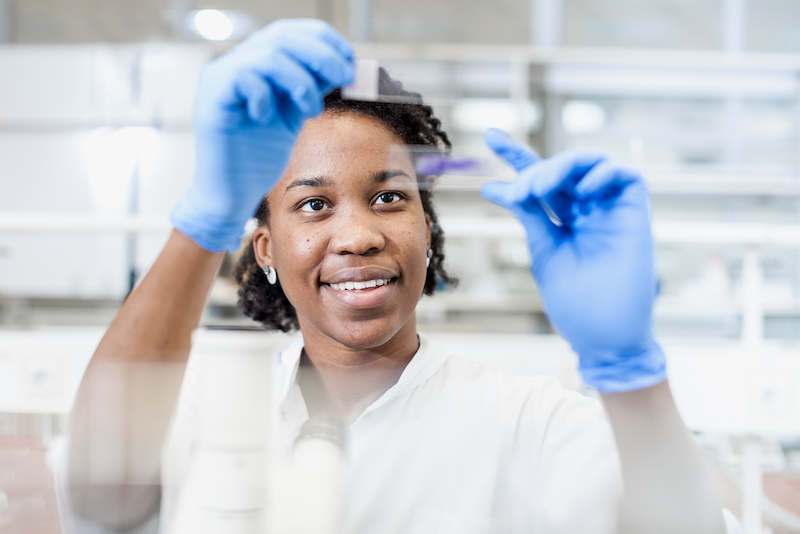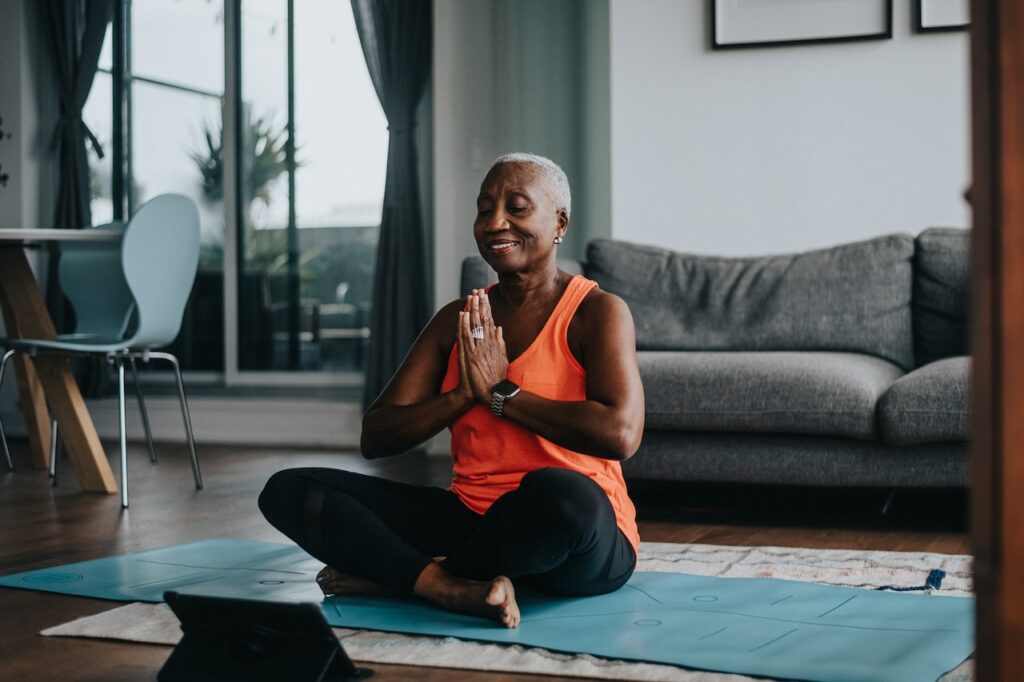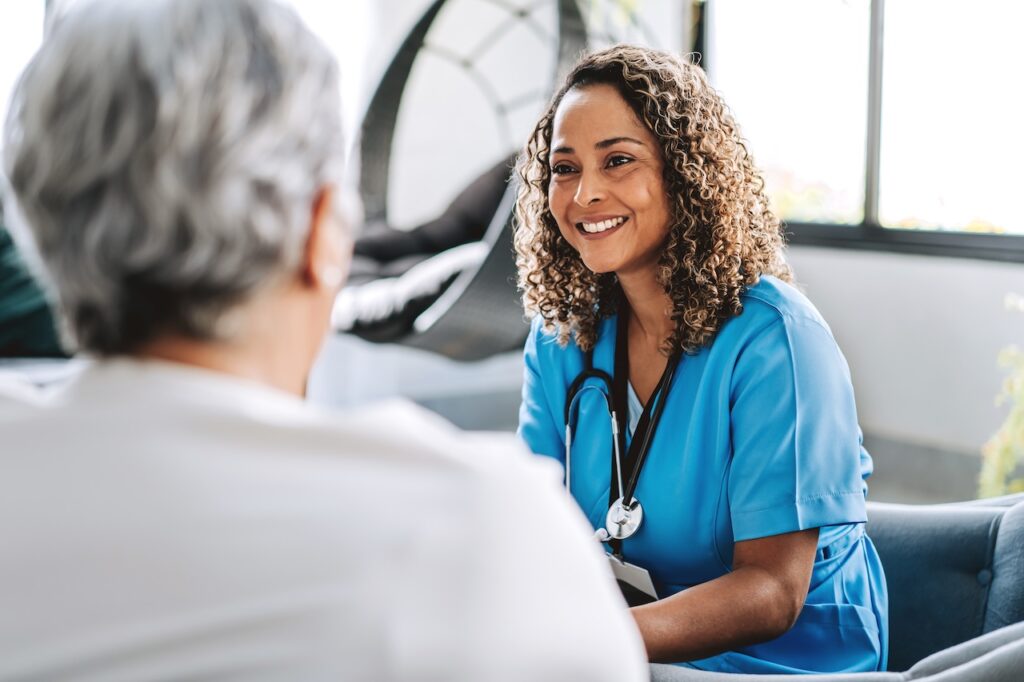Dr. Krisstina Gowin is a board-certified Integrative Hematologist and Oncologist at City of Hope and we had the pleasure of hosting her in our recent “Ask the Expert” webinar. Tune into the webinar replay for an in-depth conversation on how different integrative therapies can support people with cancer through active treatment and into survivorship, both mentally and physically.
We’ve transcribed the discussion points on how different integrative modalities can help with treatment side effects and how you can access some of these therapies, below.
The following questions and responses have been lightly edited for grammatical purposes.
1) Are there any integrative therapies that can help with neuropathy?
This is a really great question. I see this a lot in my practice. I’ve been treating multiple myeloma for many years and a huge number of my patients had chemotherapy-induced peripheral neuropathy. The guidelines do speak to this, so I think it’s important for us to circle back to them. In our pain guidelines, there’s a special call-out for chemotherapy-induced peripheral neuropathy. In those guidelines, the two recommendations are acupuncture as well as reflexology. Those are the most evidence-based ways to approach chemotherapy-induced peripheral neuropathy or CIPN.
Now, there’s a whole host of supplements that always come up, “What are the supplements that I could potentially use?” There are a lot of them that have been looked at primarily in preclinical models, so in cell cultures or animal models. Some of them show promise, but I’m always hesitant to recommend any of those until they’ve been properly studied in randomized, controlled trials and none of them have been looked at yet. I’ll mention just a few like alpha-lipoic acid, omega-3 fatty acids, acetyl L-carnitine, glutamine, and vitamin E. There’s a whole host of them, but all of them fall into the category of very small clinical trials or preclinical model testing.
Evidence-based guidance powered by NCCN Guidelines®
Personalized treatment plans shaped by the latest oncology standards—tailored to your diagnosis.
Get started
View your personalized treatment plan in the Outcomes4Me app
Use your diagnosis to unlock personalized NCCN Guidelines®-aligned recommendations.
Continue in app
For me, I’m very hesitant to recommend any of them as mainstream until we have more robust evidence. My approach is acupuncture and reflexology. I’d also like to highlight that CIPN is best prevented. I can’t tell you how many times in my practice a patient has shown up after two cycles of chemotherapy and hadn’t told me or their nurse what had been going on. They were afraid that if they say “Oh, if I’m having toxicity, then they’re going to reduce my dose.” That just breaks my heart because neuropathy can be so debilitating. I think it’s so critical to communicate in the realm of neuropathy. Communicate with your nurses and healthcare team about what you’re experiencing and don’t wait for pain. The neuropathy can be as small as the inability to unzip a zipper or grab a pencil. These are the early signs of some balance issues. Be aware of what neuropathy looks like and let the nursing team know “Hey, can you notify my provider that I’m having new sensations and new symptoms?” They may want to alter the regimen of the dose, meaning maybe you’ll skip a week of your neuropathic agent that week or they’ll reduce the dose. We do all these things with the intent of preventing neuropathy
2) What do you recommend for patients experiencing weight gain as a treatment side effect?
Weight management is so important. We need to be thinking about weight management as a powerful way to modulate survival and risk of recurrence. What does that mean? Weight management is always a challenge because there’s no one-size-fits-all, but it’s getting out there, getting moving, finding the right exercise for you, having a mix of exercise that builds muscle mass, and making sure that there’s strength in there. Also managing stress because you can’t lose weight when you’re stressed. The cortisol just keeps it on. Management of stress is part of the weight management and calorie strategy.
There are so many diets out there. My particular favorite is the Mediterranean diet because that is the best evidence and the best-designed studies for modulation of inflammation which is so critical. The Mediterranean diet would be my recommendation, but there are a lot of nuances there that would need to be personalized for you. Working with a nutritionist and getting on some sort of plan is so critical.
3) Would my health insurance cover any integrative therapies? Who should I talk to about getting started?
That highlights a critical place we need to improve in integrative oncology, which is policy. Right now, many of these modalities are not covered. We are getting better coverage for acupuncture, massage, cognitive behavioral therapy, and psychology is pretty well covered. Certainly ask for referrals within the psychology network. Many of those folks, which is the case here at City of Hope, will do mindfulness training. You can get that in the context of psychology sessions, which is covered.
When we start talking about things like supplements and yoga therapy, those are not covered. Many supplements are not covered unless they’re like a vitamin D, which is often covered if you’re deficient. It really highlights the critical need in integrative oncology to expand the coverage of these services. We know that it’s improving quality of life. We know that it’s decreasing healthcare utilization, improving outcomes, and they’re relatively inexpensive on the scheme of things. I’m a hematologist and I prescribe CAR T-cell therapy, which is $400,000, and we can’t get an acupuncture visit, so it’s wild. We just have to keep advocating for change in this space. But as it stands now, no, many of them are not covered. It’s a barrier to accessing the services. It’s a whole concept of the financial toxicity of these therapies and we really need to work on that as a field.
I also want to highlight that many of the academic centers will have patient assistance funds, so you may want to ask about that. “I am interested in acupuncture, but I do not have the means to do so. Are there patient assistance funds potentially to help me?” Usually the social work department will be aware of those patient assistance funds.
Integrative oncology resources
- Society for Integrative Oncology: Includes a tab with the pain, anxiety, depression, and fatigue guidelines mentioned in the webinar
- CancerChoices: Integrative oncology resource with a patient and caregiver focus
- Oncio: Free mindfulness-related practices
- Yoga Bridge: Free yoga programs for people with cancer
- Healing Works Foundation: Guided imagery meditation
View the full webinar with Dr. Gowin here.
Personalized support for real care decisions
Understand your diagnosis, explore clinical trials, and track symptoms--all in one place.
Get started
Compare treatments, prepare for appointments, and track side effects—all in the app
Built for your diagnosis, Outcomes4Me gives you the tools to make confident, informed decisions—right when you need them.
Continue in app






